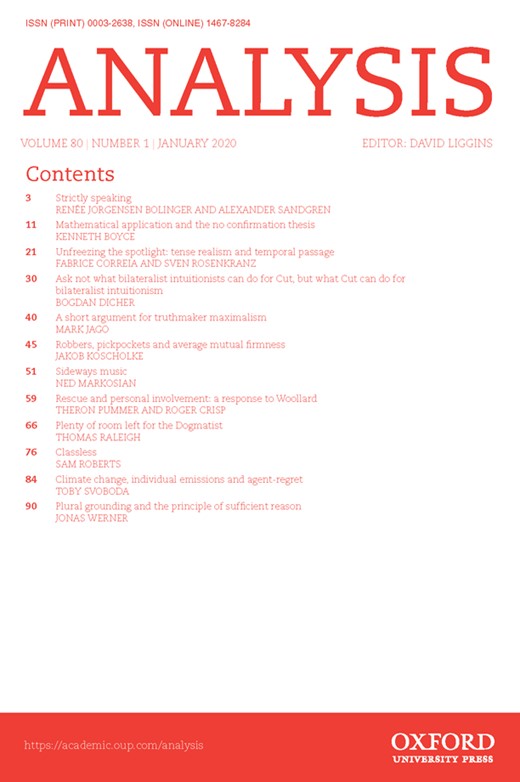-
Views
-
Cite
Cite
Bogdan Dicher, Ask not what bilateralist intuitionists can do for Cut, but what Cut can do for bilateralist intuitionism, Analysis, Volume 80, Issue 1, January 2020, Pages 30–40, https://doi.org/10.1093/analys/anz023
Close - Share Icon Share
Abstract
On a bilateralist reading, sequents are interpreted as statements to the effect that, given the assertion of the antecedent it is incoherent to deny the succedent. This interpretation goes against its own ecumenical ambitions, endowing Cut with a meaning very close to that of tertium non datur and thus rendering it intuitionistically unpalatable. This paper explores a top-down route for arguing that, even intuitionistically, a prohibition to deny is as strong as a licence to assert.
© The Author(s) 2019. Published by Oxford University Press on behalf of The Analysis Trust. All rights reserved. For permissions, please email: journals.permissions@oup.com
This article is published and distributed under the terms of the Oxford University Press, Standard Journals Publication Model (https://academic.oup.com/journals/pages/open_access/funder_policies/chorus/standard_publication_model)
Issue Section:
Articles
You do not currently have access to this article.




